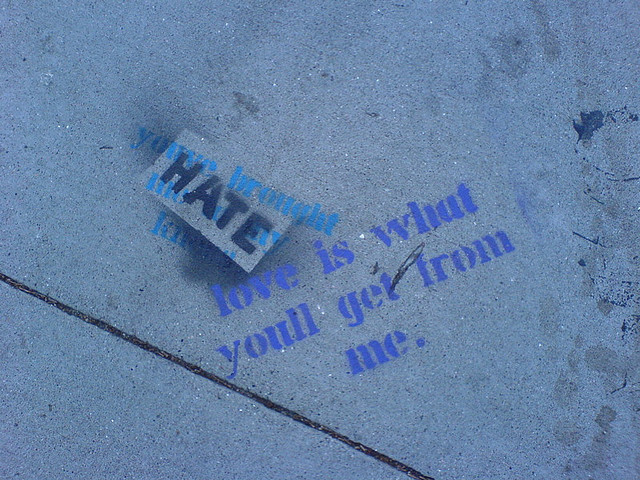Yesterday was the first time I was published on elephant journal.
I was so happy that the words I wrote might actually be helpful to others. I am, after all, called to be of service.
The article hit—and my family, friends and coaching community were so kind with their praise and congratulations. Naturally, I wanted to see how it was being received by elephant journal’s readers, so I headed over to their Facebook page.
Most comments were very nice. “Great article,” said one reader. “Excellent article,” said another. “This is cool,” said a third.
And then—there was the hater.
Her comments were about me, as a person—not even about the article itself. The gist of her hate is summed up thus: Someone who has been married three times, and who is on Tinder, is not qualified or enlightened or evolved enough to be a life coach.
For the record, I’ve been married twice. (Not three times.) She also told me I should request a refund for my coach training. When the editor at elephant journal emailed me to tell me the article was published, she gently reminded me that there might be unkind comments and to not take them personally. This is, after all, the internet, and there are trolls.
I’m glad she gave me the gentle reminder!
But here’s the beauty of being a life coach—I have all the tools I need to coach myself through any painful thoughts that might arise from criticism. However, in this case, I didn’t need to do any self-coaching, because I saw my hater as a gift.
Haters are confirmation that the work we are doing is making people think and feel. And when people think and feel, sometimes the thoughts and feelings that bubble up for them are painful. If they don’t have the tools or techniques to handle the painful thoughts and feelings, it often comes out as hatred toward the person who sparked them.
As Marianne Williamson said, “Living a meaningful life is not a popularity contest. If what you’re saying is always getting applause, you’re probably not yet doing the right stuff.”
Within my coaching community, we celebrate the haters for this very reason.
I also see this with my clients in my coaching practice. As we start to get too close to a painful, limiting belief they hold, they will often get mad at me. Many of these painful beliefs have been with them for the majority of their lives, and they hold them to be so true that any challenge questioning the validity of the belief infuriates them.
As the saying goes, “The truth will set you free. But first, it will piss you off!”
So, here’s how I handled my hater—first, I said a loving kindness prayer for her, as I realized her vitriol likely came from a place of pain within her. “May you be well. May you be happy. May you be free from suffering.”
Then, I responded kindly to her comment—to clear up the facts about the number of marriages I’ve had, and I invited her to learn more about me, via my website.
And then I was done engaging with her, because I knew that whatever she said next was all about her and her stuff—just as her original comment was. Of course, as is my nature—and it’s partly what makes me a great coach—I found the teachable moment to share to help others.
Having haters is a natural outcome of putting oneself out there to the world. Sure, it can sting to see someone question our work or our value as a human. But if we’re truly called to be of service—or to create art of any kind or to share our thoughts with the masses—holding our work back from the world, out of fear of criticism, will damage our souls far more than a few snarky comments from an internet troll.
If my words help one person to look more deeply inside and to see that maybe those painful thoughts she’s been carrying around aren’t true, then it is worth risking criticism from someone who is still holding so tightly to her pain that she has to spew it out to the world.
I’m grateful to my hater for showing me that my words are indeed effective—and that they are reaching people deeply.
The haters and the lovers are just really opposite sides of the same coin. Both are saying, “Your work touched me. And because of your words, I feel something.”
Cheers to the haters (and the lovers)!
.
Relephant:
How to Rise Above Haters.
.
Author: Vikki Nicometo
Editor: Yoli Ramazzina
Photo: Flickr/Mighty June







Read 8 comments and reply